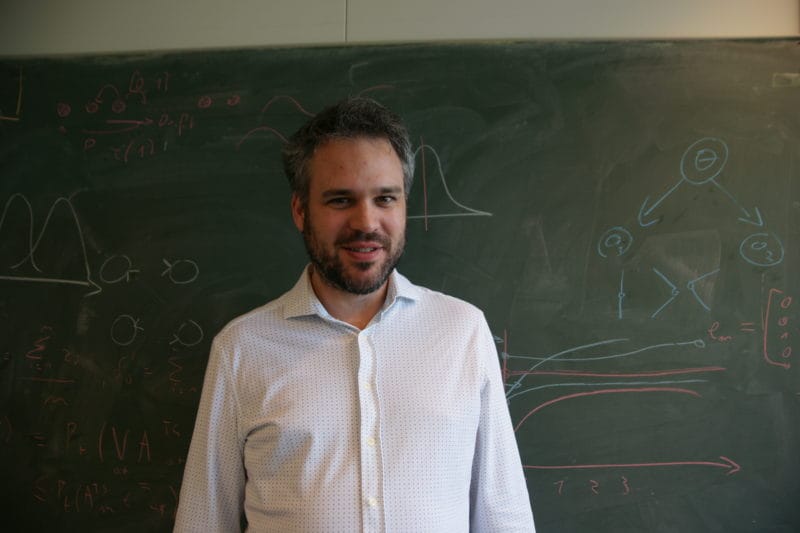Pieter Libin successfully defended his PhD research on Wednesday 15th April. Because of the social distancing circumstances currently applied to Belgium, Pieter presented his research to a remote jury, via conference call. The defence was broadcasted on YouTube Live.

Artificial Intelligence (AI) can support decision makers in managing the COVID-19 crisis across multiple dimensions. However, the question remains how to take the right actions to effectively handle an ongoing epidemic. Which are the optimal prevention strategies for infectious diseases, and how can computers automatically discover them using artificial intelligence? This is exactly the question that Pieter Libin, PhD research of the AI Lab, has addressed in his PhD research.

His approach builds on Reinforcement Learning, a subfield within machine learning that learns to take the optimal decisions that lead to a desired outcome. It does so by autonomously interacting with an environment and proposing strategies to reach well-specified goals in that environment.
In his research, Pieter investigated a reinforcement learning approach to automatically learn optimal prevention strategies for mitigating epidemics.
He applied the use of epidemiological models to study epidemics lik HIV, human papilloma virus or hepatitis C virus.
This research will support public health efforts to reduce the prevalence of pathogens causing persistent infectious diseases.
Pieter Libin will now join the team of Prof. Niel Hens on a European grant to fight COVID-19, continuing the collaboration with Prof. Ann Nowé and Prof. Philippe Lemey.
Pieter is a PhD student at the department of computer science of the Vrije Universiteit Brussel (Brussels, Belgium), under the supervision of Prof. Ann Nowé and co-supervision of Prof. Philippe Lemey (KU Leuven—University of Leuven) and Prof. Bernard Manderick.

